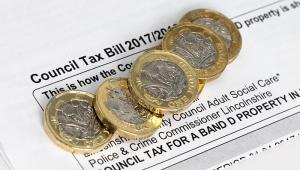Direct taxes including income tax and National Insurance Contribution work alongside benefits to reduce inequality, the Institute for Fiscal Studies claimed in a briefing note today.
Council tax, however, is markedly regressive as it is not linked to income, with the poorest tenth of the population paying 8% of their income on council tax, while the next 50% pay 4-5% and the richest 40% paying 2-3%.
Pascale Bourquin, an author of the briefing note and research economist at IFS, said: “Council tax is clearly regressive, income tax and NICs are significantly progressive, and we should probably think of indirect taxes as being broadly distributionally neutral.”
She added: “The tax and benefit system significantly reduces the gap between rich and poor, with benefits playing a particularly big role.”
The IFS said their findings were contrary to the conclusions of the Office for National Statistic’s annual report on taxes and benefits from May last year.
The NAO report suggested taxes had a “negligible” effect on income inequality. “Contrary to the ONS’s claim, taxes do also reduce inequality,” Bourquin added.
Before tax the highest-income fifth of individuals on average have an income that is 12 times as large as that of the poorest fifth. But after, including benefits and deducting direct taxes, this ratio falls to five, the IFS said.
While the UK tax system is progressive “benefits are considerably more so”, the IFS claimed. The think-tank found that at any point in time 30% of individuals are in households that receive more in cash benefits than they pay in direct and indirect taxes.











